
Episode 44 – How to Beat Your Competitors in the Customer Loyalty Space
Welcome Loyal listeners in today’s episode of the loyalty minute we’re going to be talking about how to beat 50% of your competitors in the customer loyalty arena We now […]
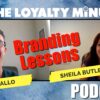 play_arrow
play_arrow
Episode 119 – (Interview) with Sheila Butler – Founder and CMO of Butler Marketing Group admin
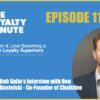 play_arrow
play_arrow
Episode 118 (Interview) with Dan Kustelski – Co-Founder of Chalkline admin
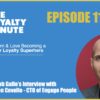 play_arrow
play_arrow
Episode 117 (Interview) with Len Covello – CTO of Engage People admin
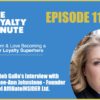 play_arrow
play_arrow
Episode 116 – (Interview) with Lee-Ann Johnston – Founder of AffiliateINSIDER admin
 play_arrow
play_arrow
Episode 115 – (Interview) with John Bertino – Owner and Founder of The Agency Guide admin
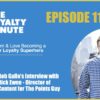 play_arrow
play_arrow
Episode 114 – (Interview) With Nick Ewen – Director of Content for The Points Guy admin
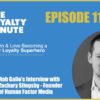 play_arrow
play_arrow
Episode 110 – (Interview) with Zachary Slingsby – Founder of Human Factor Media admin
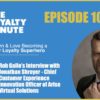 play_arrow
play_arrow
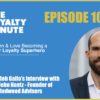 play_arrow
play_arrow
Episode 108 (Interview) with John Nantz – Founder and Strategy Consultant at Redwood Advisors admin
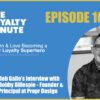 play_arrow
play_arrow
Episode 107 (Interview) with Bobby Gillespie Founder and Principal at Propr Design admin
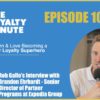 play_arrow
play_arrow
Episode 106 (Interview) With Brandon Ehrhardt – Senior Director of Partner Programs at Expedia Group admin
 play_arrow
play_arrow
admin 408
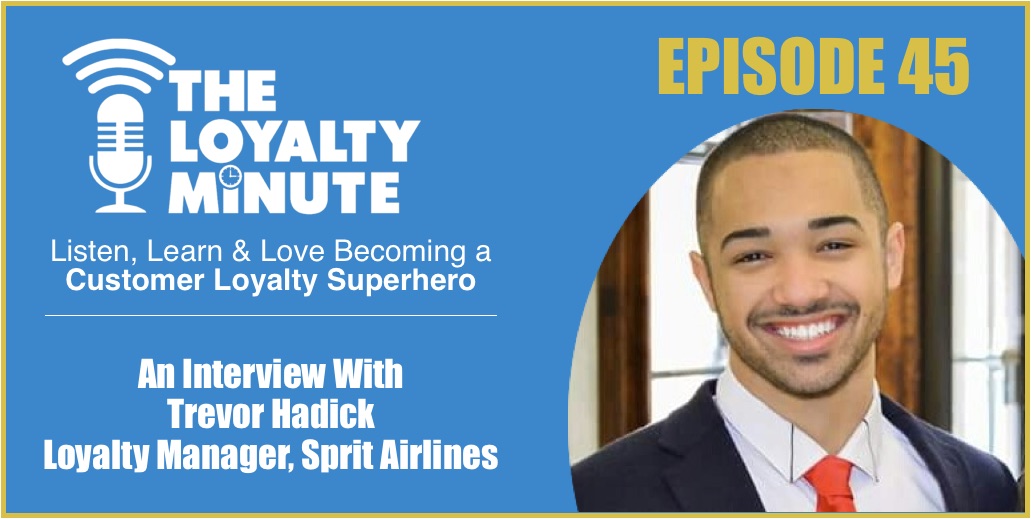
Rob: You’re listening to The Loyalty Minute, the show that helps you build better customer loyalty and more valuable user engagement with your host, Rob Gallo.
Welcome, Loyal Listeners, to another episode of The Loyalty Minute. I’m your host, Rob Gallo. Today, I’m eager to chat with our special guest, Trevor Hadick. Trevor is a data-driven marketer who currently manages the Spirit Airline loyalty program. He utilizes transaction-level data to perform segmentation and targeted marketing campaigns as well as to surface insights to innovate both the subscription and the traditional loyalty programs.
Welcome to the show, Trevor.
Trevor: Thank you, Rob, for having me. I’m happy to be here.
Rob: Good. For those listeners who don’t know who you are or what you’re all about, could you share a little bit about your background, your story, and where you are today?
Trevor: Yeah. I’m a graduate of Carnegie Mellon University. I actually have my bachelor’s in chemical engineering, maybe a bit unique in the marketing and loyalty space. I’m very focused on data and how that involves marketing decisions we make, insights that we gather, and how we drive businesses forward. I’ve been in a couple of different industries on telecommunications, manufacturing, retail, financial, and most recently, the airlines.
Right now, a lot of my focus is on managing loyalty and subscription programs, thinking about how we use the data that we have, obviously, everything that everyone does and a lot of businesses are on focus. I’m using the data that they have when gathering more data but some of that is step one is to gather, step two is to analyze, step three is the insight, but the big piece is then, how do you take that, actually make actions, and go from there? A lot of my background and focus have been that whole process, from the analytical point of view, is gather the right stuff, analyze the right stuff, surface the right stuff but to make the right decisions.
Marketing in loyalty, in general, is maybe a bit where the industry is going, we relied less on our gut or how we feel like things should be or how things may have been in the past but more listening to the guest from a data perspective to say, “This is where we need to go.” My background has really been data and everything and to jump to different industries and different businesses but using that core data to make the right decision moving forward.
Rob: Do you think your education had something to do with the direction that you took on the analytic side of the marketing aspect?
Trevor: Yeah. Chemical engineering is very process-focused. You’re thinking about your operations, you’re thinking about how to get something from an idea to execution. For us, data is a big piece of that. We’re thinking about temperatures, we’re thinking about chemicals moving through pipes, and all of those things. We’re making sure that everything is made perfectly for those substances to flow.
For me, it’s a great transition into a marketing background to say, “Hey, I have a great idea. How do we get that strategy to actually come alive and be executed correctly?” It’s that process data and from a chemical engineering background, all flowed well together whether it’s marketing, whether it was business, HR, those same skills can be applied at work. For me, loyalty is a great space to [inaudible 00:03:10]
Rob: Yeah. I love it. Did you do anything when you got out of school that was related to chemical engineering?
Trevor: I interned while in school in manufacturing for two summers, was on a plant floor, 120 degrees in the summer, research and development. It was tough but for me, I liked the process. I was in R&D so I got to go in and say, “Hey, here are the problems we have. How am I fixing these? How do I take this idea that we already have, this process that we have and tweak it, remove the errors, remove the human factors of the root cause of what’s going on?” I had the experience there.
Obviously, traditional chemical engineering wasn’t the perfect fit for me but it’s the same thing from a campaign perspective and marketing, you deploy something you think that’s going to get everyone involved and only gets involved or you have 10% of what you wanted. How do you root cause what went wrong?
For me, it’s the same thing, going into a platform or manufacturing facility, you’re saying, “Yeah, we made this great idea. We thought everything was going to go right, things aren’t going right, how do we root cause what went wrong, fix those things, and then try again?” It’s a lot of transferable skills to me although I think many people would say, “How do you go from chemical engineering to marketing? How did you make that jump? What was that like for you?” It’s been a fun experience for me.
Rob: No, I think it’s great. Again, I think it’s a different perspective that our listeners can wrap their head around because the types of people that might be listening to the program are just thinking in general customer loyalty and they might be in a different silo of their business but they’re thinking, “Wow, maybe I could make this transition into marketing or the loyalty aspect of it.”
If you’ve listened to any other programs in the past, I like to do it more of a game show. When I say that, I use the term jeopardy, answering in the form of the story. Our listeners tend to think about stories that they can relate to so if there’s any particular story, I’ll start with the first question that I ask everyone, “What is your idea of customer loyalty? What does it mean to you, literally, if you can describe it in a story that would resonate with listeners?”
Trevor: Yeah. For me, I would say my definition of customer loyalty is really that idea that you go ahead and you do something out of reaction. If you’re loyal to a car brand, you don’t even think about going to another brand and even shopping. You know where you need to go and you know what they have. You may be trying different things in the same brand but for me, customer loyalty is defined as you know where to go, it’s a reaction, it’s not even a thought.
The big thing very early on, I got the Express, the clothing retailer, credit card signed up for the loyalty program. A lot of times, when I needed to get clothing, it was not so much of what stores are in the mall, what stores are online, or what’s trending, I had stores that I always went to the shop. It was that I never googled, “Hey, where could I get this? Where can I get that or what’s the latest clothing brand that’s trending?”
I had a couple of brands that I knew, loved, and had a wide variety of stuff. It was always going to those. Maybe they didn’t have what I was looking for but it was that constant going to the website, checking the new releases, looking at maybe different products within their online store. But I think of those customers that are loyal, they go to your website and they don’t even think about going to someone else’s. They know that you have relatively what they want and will have what they want. That’s what they want to see. For me, that was what clothing was and that’s what Express was for me for a lot of years.
Rob: Did you actually have a loyalty card, a physical card?
Trevor: Yeah, I had the credit card and then I also had the actual loyalty NEXT card that they later combined into one so your credit card had both of them on it. But for me, you have the credit card, I had the loyalty program, I knew the program, I knew the clothing, there was no doubt in my mind that if I needed something, that was the first place I went. If they didn’t have it or I found out that they didn’t have the item, that’s where I started that next level of, “Okay, who would have that or where can I go?” But for me, Express was always the first place that I looked for what I was really searching for.
Rob: Do you use the program?
Trevor: Yeah, I do. I still have the card, I still shop there.
Rob: Do they have a points program? I’m not really familiar with it myself.
Trevor: Yeah. They do.
Rob: Did they dangle carrots in front of you and said, “Hey, you’re five points away from this”?
Trevor: Yeah. There are promos. I think transitioning over the past couple of [inaudible 00:07:50] brands have been transitioning side-by-side so they’ve done a lot of the “connect to your Twitter and get X amount of points, connect to your cell phone, get text messages.” Doing a lot of the increased engagement channels truly beats that up. I think recently, they had a feedback platform for some of their most loyal members which was unique, at least, in my opinion, but some of the people who have their card and had spent a decent amount of money with them over the past several years, they wanted to know what was working from a brand standpoint, what was working from a rewards program, what wasn’t working as well.
For me, I had an opportunity to be a part of that and it was a great experience for me to share, “Hey, these are the things that I loved about the brand that maybe I would like to stay or things that I didn’t like and need to be changed.” But the rewards program is something that they had some nice, to your point, carrots there and a lot of modifications, I think for them over the past couple of years about where do we take the program to be the next level.
I think their five-dollar coupons is one of the big ones, they’ll give you a five-dollar reward for doing some activities. In retail, five dollars is not enough to get you a shirt, a pair of jeans, or anything like that so it’s that thing like, “Okay, now I’m going to go into the store, I’m going to buy something to use my five dollars.” You get that $100 transaction, $200 transaction from a $5 coupon that you’ve given out.
Rob: Yeah. Smart. How does that dovetail if we possibly could have a transition into how you think about loyalty now from the Spirit Airline standpoint as an operator of the loyalty program?
Trevor: Yeah. I think the biggest thing for us is, obviously, in the airline industry, we’re a bit different in the way that we operate. Our network has changed over the past couple of years, we’ve done a lot of investing in the guests. From a program standpoint, we have some great benefits in terms of if you’re a cardholder, our redemptions will start as low as 2,500 miles for those cardholders.
Similar to Express and some other retailers where that card gets you a ton of additional benefits, our credit card also gives a ton of benefits. In today’s world, our cardholders are those who are earning miles when you use your card and you’re going ahead and seeing redemptions that no one else, unless they’re a cardholder, are able to see and actually redeem for. It’s like a tier in and of itself without actually having a tier because you’re almost an elite group that we’re catering towards.
When I think about our loyalty, I think our program does a big piece of it but I think our credit card program does a ton of additional retainment of those high-valued guests because they see, “Hey, if I didn’t have this card, look at what I wouldn’t be getting if I was not a cardholder?” They see all those benefits every time they redeem or every time they spend and earn. I think from there, if you’re a cardholder and you’re spending your loyals on us, you’re seeing what the value of the card [inaudible 00:10:44] that goes along with it versus those who didn’t have the card and they would actually be able to see, “Hey, if I had the card, I could save a lot more.”
Rob: Someone that does have the card is obviously earning more miles as they’re making regular purchases on their everyday items irrespective of their travels, that’s separate and apart from that but it’s in addition to. If I travel, I’m earning an extra number of miles, but if I shop at Walmart, Kmart, Home Depot, whoever, and I use the Spirit Airline credit card, I’m earning miles as well. They can see in their back-end of the dashboard of your loyalty program the differences in the points that they’re earning?
Trevor: Yeah. They’ll be able to go into this statement and they can see what comes from the credit card, they can see what comes from their flights. We also have a ton of partners. It’s a big part of our program. Our program has a three-month expiration of miles unless you’re a credit card holder. These credit card holders also see that their miles are not expiring so they have the card and that’s another benefit on top. They can see that they engage with partners so they can see all the miles earning from partners. From a credit card perspective, you unlock so many additional benefits just by having that card in our program today.
Rob: No, that’s huge. In other words, just by flying, my miles will expire every three months. If you’re a cardholder, they’ll last indefinitely so to say?
Trevor: Yeah. Correct. It’s a huge benefit. A lot of guests, if you are flying with us semi-frequently, it’s one of those things where you might be on that cusp where your miles would be expiring and the card’s a great way to prevent any of that from happening. Then if you transition your spin from another card that you’re using there, you’re really going to start to see the miles come in and a lot of people have great redemption options.
If you have some flexibility, which some of our travelers do or some of our markets have a great frequency and a great network out of them, you’re easily able to say, “Hey, I have a ton of miles I’ve spent on the card, my miles are going to expire,” and wait to find the right trip where you’re willing to find maybe a Tuesday rather than a Thursday because there is a great mileage out there for you as a credit card holder.
Rob: With relation to your partners, you have partners that you do on the earn side as well as the burn side?
Trevor: Most of our partners are on the earn but we do have one partner that we have on the burn side.
Rob: Do you find customers using that?
Trevor: Yeah. I think for us, every program’s structure and strategy is a bit different. For us, our redemption partner has a really low threshold. For me, loyalty programs are essential to have those quick, easy redemptions for customers who you’re able to engage with. We have someone who starts redemptions as low as 200 miles and so a customer can go ahead, fly with us once, have 200 miles, and be able to engage in the program immediately after they fly.
For me, that’s one that we have one redemption partner. We have one redemption partner that anyone can use regardless of almost how many miles they have, whereas if you have those high redemption thresholds, you may need to fly with us 10 times or 20 times to have the card to get there. Our one redemption partner, although singular in who we have, is broad in terms of who can use it.
Rob: Right. On the earn side, you have, unassuming, several strategic relationships with other partners that people could earn by shopping or doing something with them that they get exclusively used for Spirit Airline miles?
Trevor: Yeah. You have like your hotels, you have your cars, it’s typical. We have our wine partners, our survey partners. For us, it’s one of those things in our program because our expiration is three months. You do see a lot of people love to engage with the partners because they’re a great way to extend that exploration another three months by having that accrual.
Our partners, from a strategic standpoint, are huge in the program’s operations because everyone’s going to be able to fly every three months to extend those miles and everyone’s going to sign up for a card. But you have some great partner options that allow you to engage with a partner and extend your miles for little to no cost.
Rob: Oh, that’s great. In other words, I could shop or I could stay at a hotel partner, earn those miles that are going to come into my Spirit Airline account in two and a half months, and it’ll extend me another three months?
Trevor: Right.
Rob: That’s great. Now, what about the marketplace? I don’t know if you’ve seen the marketplace concept that some other airlines are using, hotels are using, whereby it’s payment agnostic in the sense that it doesn’t need a specific credit card, but it allows users to shop at nearly a thousand other merchants the way they normally would. Then the airline, in this case, would earn commissions from those transactions and the customer, the end-user would earn miles. Have you engaged with any of these?
Trevor: Yeah. We actually have a FREE SPIRIT Online Mall that we encourage our guests to go to. Again, a lot of our credit card holders love it. They’re the ones who are using the Spirit MasterCard, they’re the ones who are making online transactions anyways, so to your point, if you’re already going to make a purchase at another retailer, another ecommerce company, why not go ahead and click through that online mall and earn those additional miles?
For a lot of guests who use it and love it, they see a ton of miles come in because every time they’re like, “Okay, it doesn’t matter who I’m shopping with, let me go to the FREE SPIRIT Online Mall first, let me see if I earn any miles from them. Oh, yes, I do. Okay, let me click through them.” A lot of guests love it. It’s a huge part for us, especially for our three-month expiration, it’s a great way if you make one ecommerce transaction online a month, your miles are always going to be extended as long as you go through that online mall.
Rob: Yeah. Again, it’s payment agnostic in the sense that they don’t necessarily need to use that Spirit MasterCard, they could use any credit card payment method, right?
Trevor: Correct. If you’re a non-credit card holder on us, you can use whatever credit card you have in your wallet and you always earn those Free Spirit miles and that will, at least, extend your Free Spirit miles’ life.
Rob: That’s great. Let me ask you this, in an ideal world, what would the customer loyalty and engagement strategy look like? I know we can’t talk about necessarily the future specific to Spirit because, obviously, we don’t want to give away any of the secrets that you’ve got, but in the global perspective, we look at what started in the 80s as the punch card, I have 10 Subway sandwiches, I get the eleven for free, and then they had the swipe cards that they can engage with. I see now people are using, not Bitcoin, but they’re using the blockchain as a transactional methodology of tracking someone’s loyalty. In your mind, Trevor, what does the future of loyalty look like?
Trevor: Yeah. I think if I could paint what I would see as a future, I would see individual journey mapping or creating your own journey as an individual, that automation and creating a program or loyalty experience that’s custom to you. For me, if I’m designing one, I’m going to use buying a car as a great example because I personally think automation is what people want or they want the ability not to automate if they don’t want that.
In today’s world, a lot of people are going to buy a car, you may do some online shopping, you may know the brand you’re looking for, the car types, but ultimately, you get online and you are greeted by a salesman or woman who wants to go ahead and give you a test-drive, talk about pricing, and all of that. I’m someone who wouldn’t want that engagement. If I’m going to shop for a car, I want to be able to walk on the lot, I want to schedule a test drive for myself in advance, I know what time I want, I know what cars I want to see. I don’t want to engage with someone. For me, I want that experience, but not everyone wants that exact same experience.
Some people do want someone to walk through all the features and show you everything if you want to talk through pricing and talk through that but I don’t want those things. I want a system that’s going to say, “Here are your pricing options.” Maybe I can go ahead and negotiate the price online and say, “I’d be willing to pay this,” and see if maybe I wait for a half-hour and get an acceptance back. Those are the things that I think in the future is less about “should a program have this or should have program have that or how do we design loyalty,” I think loyalty is going to come from allowing someone to create the experience that they see in the future the way that they want it to be.
I mentioned the car dealership is a great opportunity but you think about self-checkout lines in a lot of retailers today, that gives you the ability to be able to say, “Yes, I’d love to wait in line and have someone bag my groceries,” or “No, I actually don’t want to do that, I want to go through, I want to automate my process, and do the things myself.” I think more of those options to allow someone to choose between A, B, and C or A and B or whatever it may be is going to drive their loyalty because people are going to create the experience that they want which is going to make them loyal. If I’m creating this automated experience because that’s what I want, and let’s say you’re creating a human interaction experience because that’s what you want, we’re both going to leave with very different experiences but we’re both going to have a great five-star experience with what we did have.
I think in the future, the more and more that brands continue to allow customers to create the options and create the experiences that they want, you’ll see loyalty driven in those brands or in those companies specifically.
Rob: Yeah. I think you’re 100% spot-on, especially in today’s instant gratification economy, people just want what they want when they want it and it may take different forms. The way we think about things now, my kids are in their mid-20s and they think about interaction with brands way different than I do. I like to get somebody on the phone—don’t get me wrong, I’m a self-checkout guy, I like things to happen at a faster pace, I’m super tech savvy—but sometimes, I like to just get somebody on the phone so that’s me speaking with a representative because it’s more complicated for me sometimes to explain what I need to do typing wise or trying to figure out the right knowledge-base answer that’s going to specifically answer my question. I think you’re 100% spot on there.
One of the interesting things when you mentioned cars, I went for a test drive with Tesla and I think they have the right model for test driving cars or, at least, for interacting with a “salesperson”, you go in and they don’t really pressure you. They think that they’re doing you a favor just by saying, “Hey, come and check out this car.” I don’t know if you’ve ever been in one of these things, it is an awesome vehicle and then it’s so fast, it’s crazy. But I think they’re doing a great job in that respect of exactly like you said, giving the consumer the option in making the decision that best suits their needs of how they want to be sold and sold to.
Let me ask you this, what actionable advice would you give to a fellow marketer in the loyalty program that would help them retain customers?
Trevor: I think the biggest thing with my background not being in marketing, I don’t trust my gut with anything. I think the biggest advice that I would give is your gut has a lot of great instincts, but why trust something that could be wrong when more than likely, your data that you have, an analyzed point of view, is correct? I guess my biggest piece of advice would say if you are in between a decision or you feel like you have to lead your gut on somewhere, and you have the time, you have the resources, analyze the data.
I think more than likely, it’s going to point you down a path. If for some reason, it points you down the wrong path, at least, you know why you got there. You can go back and say, “Hey, we misread this data, we interpreted like this but it’s not what it is.” It gives you that ability to think back and say, “Okay, here’s what we thought, here’s why we thought this, here’s what we analyzed, maybe we missed a piece. Maybe our analysis was wrong. Maybe it is what we want but it’s not the future. Maybe we were analyzing from the past.”
That’s what I embody in a lot of what I do when I have to make decisions or I have people asking me questions like, “Where are we going and what’s the strategy?” I don’t have 30 years of marketing experience and program experience to be able to rely on, for me, after all, I have the data and just hope that what our guests are doing and what they’re displaying through that is correct. I would just advise others, at least, for the success that I’ve had to also do the same and I think they will reward them so well.
Rob: Well said, Trevor. If our listeners want to get a hold of you for more information, what’s the best way to do that?
Trevor: You can find me on LinkedIn, Trevor Hadick, you can search for me. I don’t think there’s another one of me out there so you should be able to easily feel free to connect with me or message me. I’m happy to take any questions or anything offline or follow up if anyone has anything else they’d like to discuss.
Rob: Trevor, I wanted to thank you for being a guest on the program and I want to thank our listeners as well for investing some of their valuable time with us. If you feel you received value from the show, we’d appreciate a five-star review in your favorite podcast streaming service. If you know someone else who might find some value in listening to the podcast, please share. To reference this and other The Loyalty Minute episodes, please visit theloyaltyminute.com.
Thanks for listening. Be sure to tune in tomorrow for your next edition of The Loyalty Minute.
Tagged as: Customer Loyalty, Customer Data, Spirit Airlines, Data Analytics.

Welcome Loyal listeners in today’s episode of the loyalty minute we’re going to be talking about how to beat 50% of your competitors in the customer loyalty arena We now […]
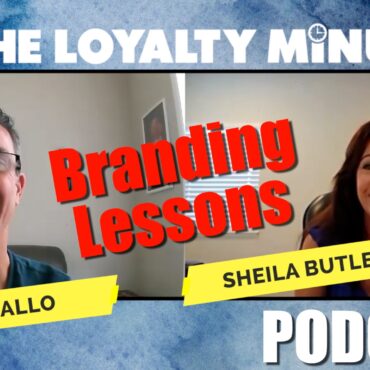
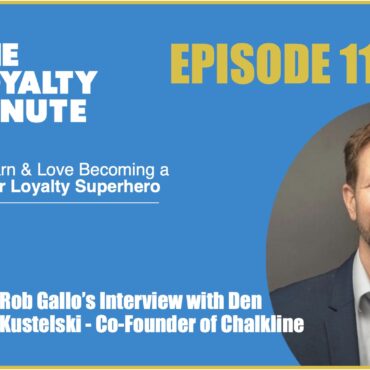
You can see how this popup was set up in our step-by-step guide: https://wppopupmaker.com/guides/auto-opening-announcement-popups/
I do the podcast commercial free and with no sponsors. If you’d like to show your support for the program, you can buy me a cup of coffee.☕️
The caffeine keeps me going!
You can see how this popup was set up in our step-by-step guide: https://wppopupmaker.com/guides/auto-opening-announcement-popups/